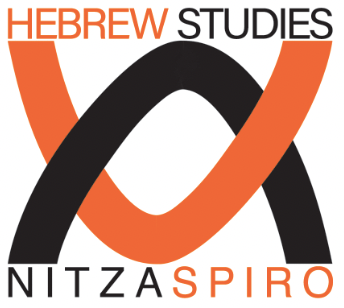PAUL MARTIN:
BIOGRAPHICAL AND CAREER NOTE
EXPERTISE: Middle East, especially Arab-Israeli conflict; Gaza; Iraq; southern Africa; sports politics; nuclear non-proliferation.
Paul Martin has covered conflicts in the Middle East, Africa and Eastern Europe since he began his career in 1977. He was correspondent for the BBC in Cairo from late 1978 during the four years when he was reporting at the heart of the world's top story: the Arab-Israeli dispute and Egypt's peace treaty with the Jewish State. He also worked there for US National Public Radio and Australian Broadcasting, as well as writing for British newspapers.
He was the first journalist to make the journey between Egypt and Israel, in 1979, which he reported colourfully on the BBC flagship programme "From Our Own Correspondent" - a programme to which he continued to contribute regularly (doing at least ten FOOCs in the past three of years), even though he is no longer on the BBC payroll.
He had the last radio interview ever granted by the about-to-be-assassinated President Anwar Sadat in 1981. (He also did the last TV interview of Yasser Arafat!)
Martin covered the war in Lebanon from Beirut in 1981 - he left the war scene at one point to report for CBS Sports and BBC African Service on tennis at Wimbledon! - as well as being in Iraq for the BBC after the Israeli attack on its nuclear reactor in 1982.
His expertise academically is in Africa. From British parents, he was educated in South Africa's premier university, at the UCT School of African Studies, and obtained degrees in Arts and Law. He was involved in anti-apartheid activity, was arrested several times, and eventually went into exile in the UK. He was unable to report officially from South Africa until the end of the apartheid era. His first major newspaper scoop was about Uganda (front page of The Observer 1977), and he also is known for his expose of the Iraqi nuclear programme and its links with France, published in The Times in 1978.
In his coverage of the various eastern European revolutions, he was in Prague for the fall of Communism there, and later made a BBC film about those who had taken part. He also made a film about the fall of Ceausescu in Romania - Martin was the first journalist to get to the military camp where the Ceausescus were executed. That acclaimed film was shown on ARD and ORF in 1990.
Martin also extensively covered the war in ex-Yugoslavia, and is best noted for his film "Children of War", shown on American PBS, Swedish SVT, Irish RTE and several other countries. His portrait of Boris Yeltsin ("What Made Yeltsin?"), were shown on NBC News, SVT, and many other stations - Martin's company East-West Productions, which he founded, had a Moscow office.
His links with South Africa proved handy when he secured several interviews with both the hard right Afrikaners and with Nelson Mandela.
When the Intifada started in late 2000, Martin began covering it in meticulous detail, from all sides. he became an expert on its intricacies in the West Bank and in the Gaza Strip. He also met the Hamas leader Khaled Meshaal inside his secret base in Damascus, Syria.
Paul Martin made several powerful reports inside war zones within Gaza for BBC Newsnight; and his company distributed very strong human and tragic stories from within Gaza during g the recent war there. He has also been attacked by the pro-Palestinian lobby for revealing the true death toll figures in Jenin; the true behaviour of militants inside the Church of Nativity while gunmen within it were under siege; and most recently when he produced a Newsnight feature in which a British colonel showed failures and inaccuracies in the way the war in Gaza had been reported. Martin gets flack from both sides in that conflict.
Martin also filmed extensively with the extremist group that kidnapped BBC Gaza correspondent Alan Johnston, and was the only Western television reporter inside Gaza to report the violent clashes between Hamas and Fatah that led to the Hamas takeover of security in mid-2007.
In February 2010 Martin was arrested by Hamas security personnel when he came to a Gaza military court to give evidence. He had been filming a young Gazan who had been a rocket firer but was now advocating a non-violent approach. Martin was threatened with death, jailed and interrogated, but was released after 26 harrowing days, partly thanks to the intervention of pro-Palestinian British MPs and Nobel Prize-winner Archbishop Desmond Tutu.
Martin has spent many hours discussing Islam with Hamas leaders and sheikhs
Being arrested is not unheard of for Martin. He was locked up three times and beaten in the streets during apartheid South Africa. He is the only journalist who has been picked up in nIraq by the security services of Saddam Hussein and of his successors, the Americans; and so on.
Martin is married, lives in London, and has a daughter of 25 who is a recently qualified medical doctor, and a 21-year-old daughter studying Development at university.
ENDS.
The responce the Spiro Ark is proud to announce after the event:
"My friend, Pauline Tunnel told me about the talk to be given by Paul Martin last night at the Spiro Ark. And I came and heard it. What a fine man, brave and an excellent speaker. I listened enthralled to him.
Please let me know of future events like that if you don't mind.
Shalom
Roberta"



